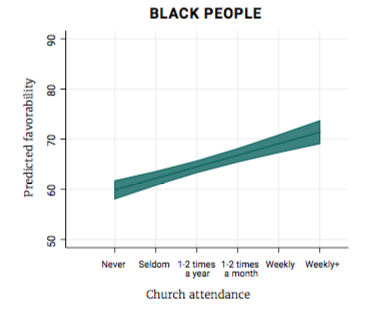- Ioannis D. Evrigenis, Professor of Political Science
- Erin I. Kelly, Professor of Philosophy
- Peter Levine, Lincoln-Filene Professor and Academic Dean, Tisch College
Civic Studies is an interdisciplinary field of study that focuses on critical reflection, ethical thinking, and action for social change. People who think and act together to improve society must address problems of collective action (how to get members to work together) and deliberation (how to reason together about contested values). They must understand how power is organized and how it operates within and between societies. They must grapple with social conflict, violence, and other obstacles to peaceful cooperation. When tensions arise within a group, people face questions of justice and fairness, and they must confront questions about appropriate relationships to outsiders of all types. This introductory course explores ethical, political, and theological frameworks for understanding how people can and should organize themselves to improve societies. Readings are drawn from philosophy and political theory, economics, the history of social movements, and other disciplines. This course provides theoretical grounding for Civic Studies majors and for other students interested in social change.
Books:
Mark Lilla, The Once and Future Liberal: After Identity Politics. On order at the Tufts bookstore. Recommended: David Grann, Killers of the Flower Moon.
Final grades will depend on:
- 10% class participation
- 25% first paper (5-7 pages)
- 25% second paper (5-7 pages)
- 30% a simulation (a group exercise that comprises six short writing assignments, each worth 5%)
- 10% in-class midterm exam
September 5: Introduction
September 10: A “feeling of personal responsibility for the world”
September 12: What is a citizen? Who is a citizen?
Aristotle, Politics III.1-5 .
September 17: The citizen in a modern democracy
John Dewey, The Public and its Problems, Chapter 5, “Search for the Great Community.”
Problems of Collective Action
September 19: Elinor Ostrom and the Bloomington School
Elinor Ostrom, Nobel Prize Lecture (Links to an external site.)Links to an external site.(video or text)
September 24: Ostrom Continued
Thomas Dietz, Nives Dolsak, Elinor Ostrom, and Paul C. Stern, “The Drama of the Commons ” in Elinor Ostrom, ed., Drama of the Commons, pp. 3-26.
” in Elinor Ostrom, ed., Drama of the Commons, pp. 3-26.
Elinor Ostrom, “Covenants, Collective Action, and Common-Pool Resources ”
”
September 26: Collective Action Problems at Scale
James Madison, The Federalist #10. (Links to an external site.)Links to an external site.
Jane Mansbridge, Beyond Adversary Democracy, pp. 23-35, 59-76, 163-182 293-8 
October 1: Spontaneous Order
Friedrich Hayek, “The Pretence of Knowledge ” Nobel Prize Lecture (1974)
“Friedrich Hayek” in the Stanford Encyclopedia of Philosophy
James C. Scott, Seeing Like a State: How Certain Schemes to Improve the Human Condition Have Failed ,Introduction (pp. 1-8), Chapter 3 “Authoritarian High Modernism”
,Introduction (pp. 1-8), Chapter 3 “Authoritarian High Modernism”
Draft of first paper due
October 3: Social Capital as a Solution
Robert D. Putnam, “Community-Based Social Capital and Educational Performance ,” in Ravitch and Viteritti, eds., Making Good Citizens, pp. 58-95
,” in Ravitch and Viteritti, eds., Making Good Citizens, pp. 58-95
Identifying Good Ends and Means
October 9: Habermas and Deliberative Democracy
First group assignment (Links to an external site.)Links to an external site. due
October 10: Habermas Continued
- Jürgen Habermas, Between Facts and Norms, pp. 359-379
October 15: Implementing Deliberative Democracy
Nabatchi, Matt Leighninger, Public Participation for 21st Century Democracy (2015), pp. 241-285 and 305-324 
Danielle E. Allen, Talking to Strangers: Anxieties of Citizenship Since Brown, v. Board of Education  pp 140-186
pp 140-186
Final draft of first paper due
October 17: Scholars in Public Deliberation
Visiting speaker: Prof. Jonathan Garlick
Bent Flyvbjerg, ” Social Science that Matters ” (2006)
(additional reading)
October 22: John Rawls
John Rawls, A Theory of Justice, pp. 3-19, 52-57
October 24: John Rawls, continued
John Rawls, “The Idea of Public Reason Revisited”
Nina Eliasoph, Avoiding Politics, pp. 1-22
Lynn Sanders, “ Against Deliberation”
Exclusion and Identity
October 29
Audre Lorde, “The Master’s Tools Will Never Dismantle the Master’s House.”
Steve Biko, “Black Consciousness and the Quest for True Humanity ”
”
The Book of Nehemiah
Second group assignment due
October 31: Identity and the Common Good
Lilla, The Once and Future Liberal
November 5: Social Movements
Charles Tilly, ” Social Movements, 1768-2004″
Jürgen Habermas, Theory of Communicative Action, vol. 2, pp. 391-6.
Marshall Ganz, “Why David Sometimes Wins: Strategic Capacity in Social Movements ,” in Jeff Goodwin and James M. Jasper, Rethinking Social Movements: Structure, Meaning, and Emotion (Lanham, MD: Rowman and Littlefield, 2004) pp.177-98.
,” in Jeff Goodwin and James M. Jasper, Rethinking Social Movements: Structure, Meaning, and Emotion (Lanham, MD: Rowman and Littlefield, 2004) pp.177-98.
November 7: Community Organizing
Saul Alinsky, Reveille for Radicals , 1946 (1969 edition), pp. 76-81; 85-88; 92-100, 132-5, 155-158.
, 1946 (1969 edition), pp. 76-81; 85-88; 92-100, 132-5, 155-158.
Myles Horton and Paulo Freire, We Make the Road by Walking , pp. 115-138
, pp. 115-138
November 14: Midterm in class
November 19: Nonviolent Campaigns
Martin Luther King, Stride Toward Freedom , chapters 3, 4, and 5.
, chapters 3, 4, and 5.
? Erica Chenoweth and Maria J. Stephan, Why Civil Resistance Works: The Strategic Logic of Nonviolent Conflict, chapters 1 and 2 
November 26: Nonviolence
Bikhu Parekh, Gandhi, Chapter 4 (“Satyagraha”), pp. 51-62 ;
;
Timothy Garton Ash, “Velvet Revolution: The Prospects, ” New York Review of Books, December 3, 2009
” New York Review of Books, December 3, 2009
The Person in Community
November 28: Plato, Apology of Socrates
December 3: Plato, Apology of Socrates; Crito
December 5: Civic Education: What all this means for what students should learn
Joel Westheimer and Joseph E. Kahne, “Educating the ‘Good Citizen’: Political Choices and Pedagogical Goals ,” PS Online
,” PS Online
Third group assignment (Links to an external site.)Links to an external site. due
December 10: Civic Studies at Tufts and Beyond
Draft of second paper due
Dec. 20: Final paper due.


